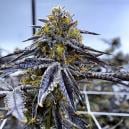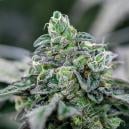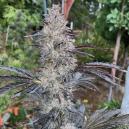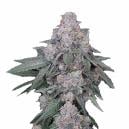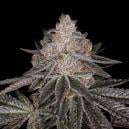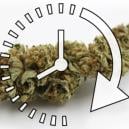The Cognitive Link Between THC And Dopamine
Published :
Jun 12, 2018
Categories :
Medical cannabis

Dopamine is responsible for numerous physiological and cognitive processes including mood, appetite, and reproduction. THC influences the release of dopamine in multiple ways, and can either boost or decrease levels of the neurotransmitter.
Despite increased legalization of cannabis across many regions of the world, debate still wages on regarding its effects on mental health. At one end of the spectrum, various media sources and governments argue that the psychoactive components of marijuana can lead to mental health issues like psychosis and schizophrenia, and that cannabis is a gateway drug that encourages abuse of more damaging and addictive substances.
On the other end of the spectrum, scientific research describes the neuroprotective benefits of certain cannabinoids, and many anecdotal accounts explain how cannabis appears to have a beneficial effect on mental health conditions such as anxiety and depression.
So where exactly does the truth lie? The reasonable conclusion points toward it being somewhere in the middle of the spectrum. There is no doubt that cannabis does help some people with their mental health challenges, but there is also evidence to suggest that abandoning moderation and overindulging in cannabis can lead to mental health conditions in others.
Regardless of these outcomes, how is it that cannabis achieves the psychoactive effects that both medicinal and recreational users seek?
PHYSIOLOGICAL ACTIONS OF THC
THC is the compound responsible for the psychoactive high induced when cannabis is smoked or ingested. Classified as a cannabinoid, THC is one of many similar compounds found in cannabis. Technically, these chemicals are referred to as phytocannabinoids because they are found in and sourced from plants. Cannabinoids are also synthesised within the human body, but these molecules are known as endocannabinoids.
The way THC works in the body is complex and manifold. The cannabinoid interfaces with receptors that comprise the endocannabinoid system, being a partial agonist to both the CB1 and CB2 receptor. It achieves this action through biomimicry, being molecularly similar to the endocannabinoid and neurotransmitter anandamide, which fulfils various physiological mechanisms and is believed to be responsible for the “runner’s high”.
The actions of THC are not exclusive to endocannabinoid system receptors. THC also produces effects upon the dopamine system. A scientific paper published within the journal Nature discusses how acute levels of THC have been shown to increase dopaminergic cell firing, increase dopamine synthesis, and increase dopamine release in vivo.
It’s thought that THC initiates dopamine release in an indirect way, and does so by binding to CB1 receptors. THC binds to cannabinoid receptors on GABA neurons, and in doing so, deactivates them. Because GABA activation suppresses dopamine, dopamine levels increase when this deactivation occurs.
WHAT IS DOPAMINE?
Many people have heard of dopamine before, and associate it with happy feelings and emotions. So what exactly is dopamine? And how is it involved in the effects produced by THC?
Dopamine is a neurotransmitter that acts as a messenger between brain cells. The molecule plays important roles within human physiology, such as movement, appetite, learning, and addiction. Dopamine is produced largely within regions of the brain known as the substantia nigra and the ventral tegmental area.
Dopamine is vital within the reward system of the brain. When we commit an act that contributes toward survival or reproduction, areas of the brain increase the release of dopamine in order to associate rewarding feelings with a particular stimulus.
This reward system is thought to be the foundation of addictive behaviour such as drug abuse. THC is known to boost dopamine, meaning that smoking weed causes a spike in this happy brain chemical.
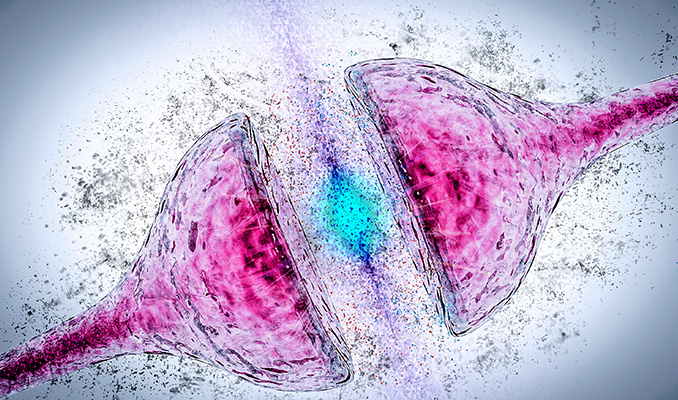
ACUTE EFFECTS OF CANNABIS ON DOPAMINE
Many people reading this article are probably familiar with the happy and hazy sensations that come about after smoking a joint or burning a bong bowl. This feeling is due in part to the effects that cannabis has upon the dopamine system, and the effects that dopamine sustains upon the reward system.
The boost of dopamine when smoking cannabis is also associated with increased appetite, often known as “the munchies”, due to dopamine’s influence on appetite.
CHRONIC EFFECT OF CANNABIS ON DOPAMINE
Although cannabis can boost dopamine levels in the short-term, over time, excess THC is actually associated with a blunting of the dopamine system. This is why excess cannabis use has been associated with numerous mental health conditions, with blunted dopamine release associated with schizophrenia and psychosis.
The aforementioned research states that heavy cannabis use is positively correlated with impaired educational and occupational outcomes that are tied in with cognitive impairment, executive dysfunction, working memory impairments, and amotivation. These factors are associated with dopamine release.
Cannabis has an extremely long list of benefits, and proves to be a valuable medicine to many. However, as with most things in life, moderation really is key. Furthermore, the way cannabis affects people’s mental health will vary from one person to the next.















